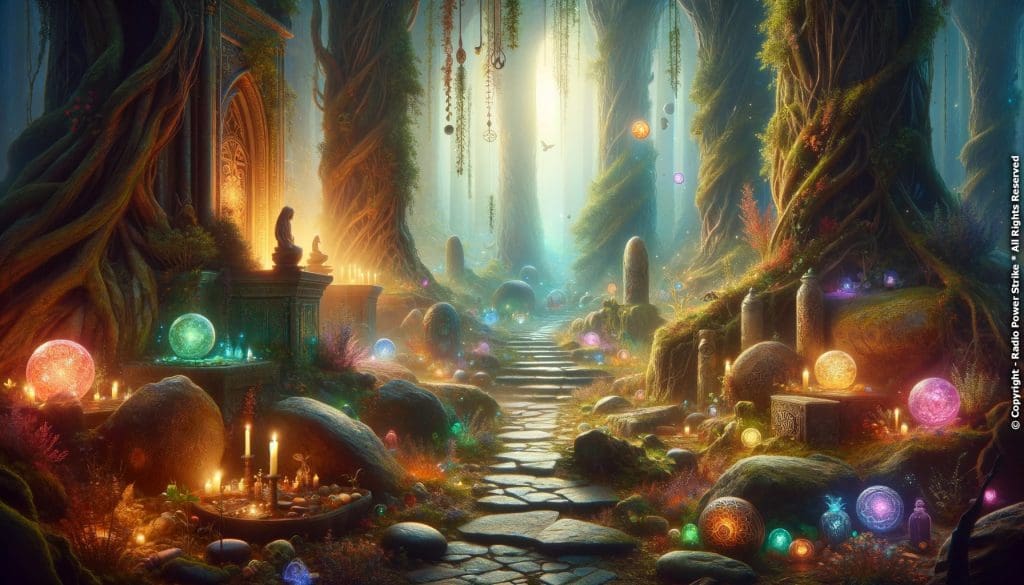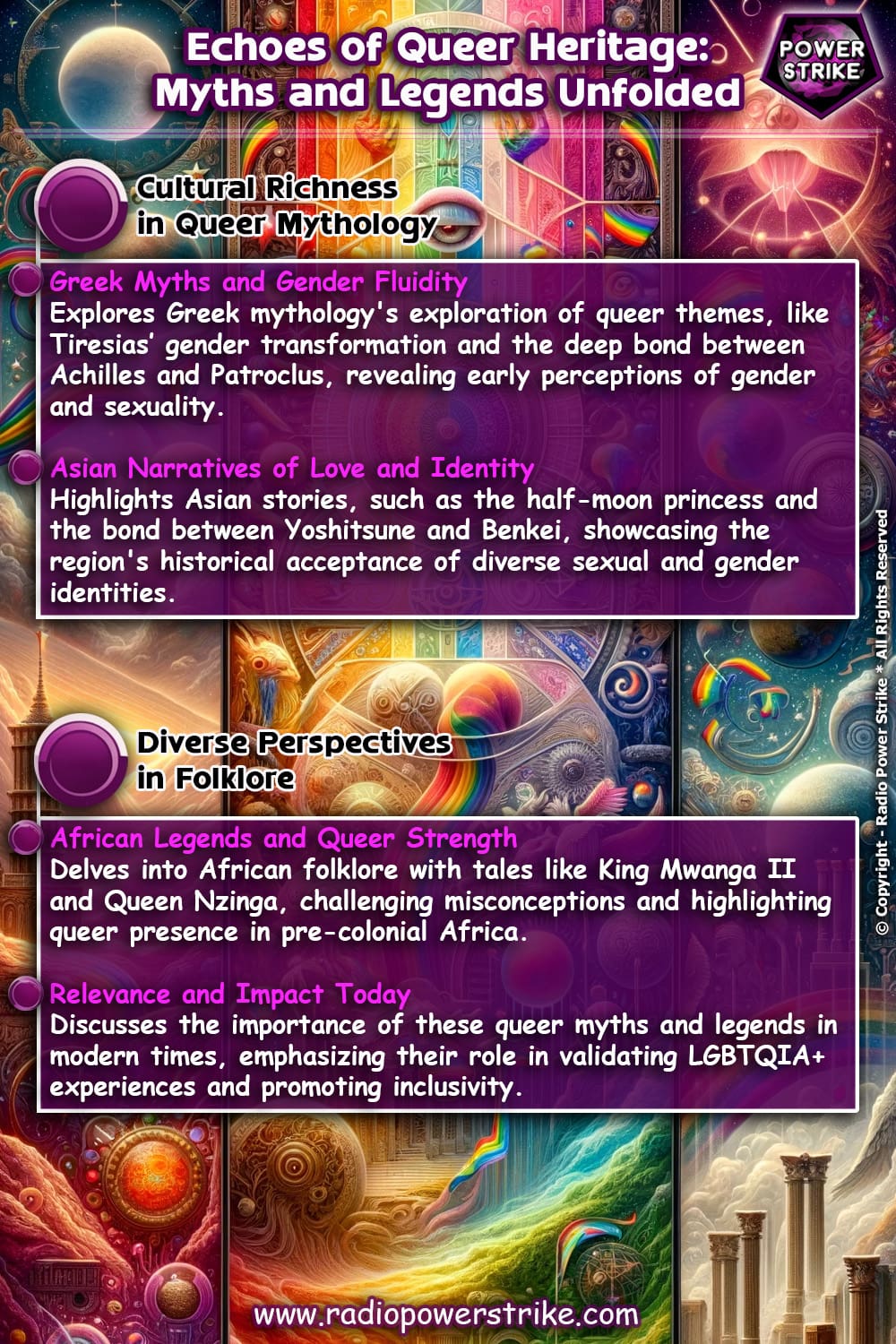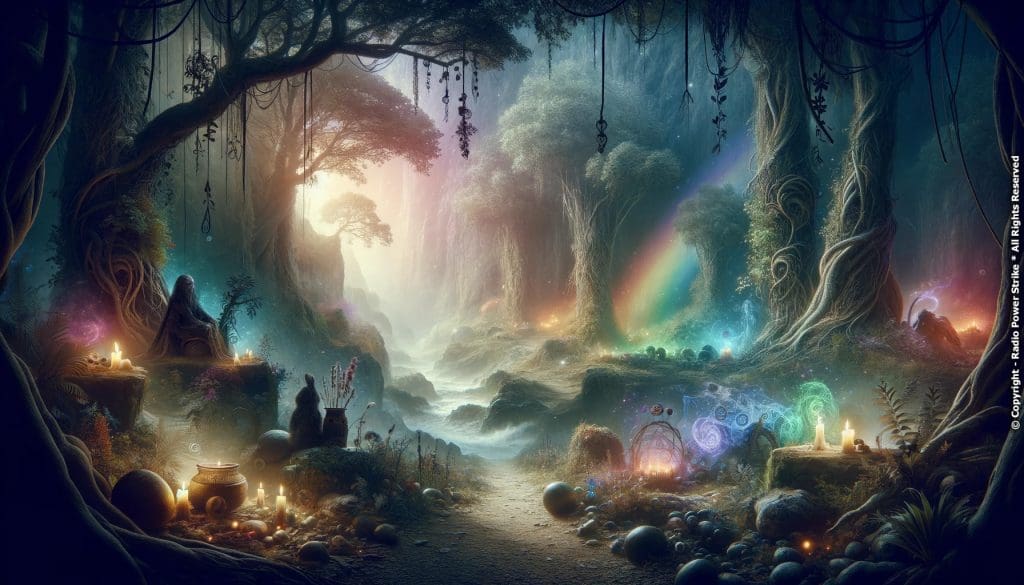Mystical Journeys: Exploring Queer Myths and Legends
Diving Deep into the Enigmatic World of LGBTQIA+ Folklore

Every culture has its collection of myths and legends. These tales, passed down through generations, shape our beliefs, morals, and understanding of the world around us. Within the vast tapestry of stories, many LGBTQIA+ narratives remain hidden, waiting to be rediscovered.
By shining a light on these tales, we can appreciate the depth and richness of queer history. This journey into the world of queer myths and legends not only broadens our understanding but also reiterates the universal nature of human experiences across time and cultures.
As the world becomes more inclusive, it’s essential to revisit these tales, offering a fresh perspective and ensuring that every voice, no matter how silenced in history, finds its rightful echo in the annals of time.

Greek Myths: Beyond the Heteronormative
Greek mythology, replete with gods, goddesses, and heroes, also has its share of queer tales. The story of Tiresias, who experienced life as both a man and a woman, offers insights into early perceptions of gender fluidity and the spectrum of human experiences.
Achilles and Patroclus, often portrayed as close friends, share a bond that many historians and scholars interpret as deeply romantic. Their relationship serves as a testament to the profound connections that transcend conventional gender roles and societal norms.
Hyacinthus, a beautiful youth loved by the god Apollo, further underscores the presence of queer love stories within Greek myths. Their tragic tale, a poignant blend of love, jealousy, and rebirth, highlights the timeless nature of human emotions.
Asian Narratives: A Tapestry of Love and Acceptance
Asia, with its rich history and diverse cultures, offers myriad tales that celebrate queer identities. The tale of the half-moon princess from an old Javanese script speaks of a woman who lived as a man, touching upon gender fluidity and societal roles.
In Japan, the bond between the warrior Minamoto no Yoshitsune and the monk Benkei goes beyond mere camaraderie. Historical texts and traditional songs hint at the romantic nature of their relationship, challenging the often rigid perceptions of love and friendship.
India’s vast epics, too, are not devoid of queer tales. The Mahabharata narrates the story of Shikhandi, born as a woman but identified as a man. Shikhandi’s role in the great Kurukshetra war emphasizes the importance of embracing and acknowledging diverse identities.
African Legends: Strength and Resilience
Africa’s rich oral tradition and folklore present numerous queer tales that often go unnoticed. The legend of King Mwanga II of Buganda speaks of his relationships with men, challenging the common misconception about the absence of queer identities in pre-colonial Africa.
Queen Nzinga, a formidable leader, often took on male roles and attire, blurring the lines of gender and showcasing the fluidity that existed even in historical African societies.
The tales of warias in some African cultures, individuals who merged male and female traits, further underscore the continent’s recognition and respect for non-binary and queer identities.
Revisiting queer myths and legends from across the globe offers a unique lens to understand human history. These tales, often sidelined or reinterpreted, hold within them the essence of cultures, societies, and human experiences that span ages. As we delve deeper into these stories, we not only honor the past but also lay the foundation for a more inclusive and accepting future. Celebrating these narratives is a nod to the timeless nature of love, identity, and the human spirit.


Comments are closed, but trackbacks and pingbacks are open.